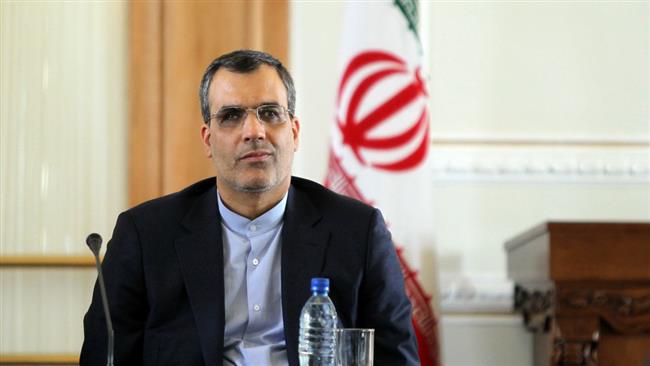
RNA - Iran’s Deputy Foreign Minister for Arab and African Affairs, Hossein Jaber Ansari made the remarks in a meeting with the United Nations Special Coordinator for Lebanon Sigrid Kaag in Tehran, IRNA reported on Wednesday.
Ansari said, due to their misconceived interpretation of the crises unfolding in the region, certain states are instrumentalizing terrorists, a scheme which “could bring back short-term or tactical benefits for these players, but is [in fact] a big strategic mistake, which in mid- and long-term would prove detrimental to those very states.”
He referred to the Tel Aviv regime’s provocations in Lebanon and Syria, saying, “The equation which Israel is trying to implement and stabilize in Syria is one in which it is allowed to do whatever it wants, while the other party is unable to respond.” “This is a wrong wager. There is no guarantee that the existing equation will stand.”
Recently, Israel has carried out many attacks inside Syria, including against army positions in the Golan Heights. The regime has also been providing medical care for the Takfiri terrorists operating to topple the Syrian government.
Ansari also cautioned against ethnocentrism and religiously-charged divergence in the region, saying, “Syria’s crisis and the region’s other problems are neither of ethnic nor of religious nature. They are political crises, which can only be solved through serious political dialog.”
The official reiterated Tehran’s principal policy of supporting security and stability in Lebanon, calling on different parties in the Arab country to resolve their differences.
Influential foreign players should support the process of national reconciliation there, he added.
The UN official, for her part, described the security situation inside Lebanon as desirable despite the regional and internal problems affecting the country.
She expressed hope that a potential political agreement in Lebanon will contribute to the country’s stability.
Lebanon has been without a president since May 2014, when former President Michel Sleiman’s term in office ended.
In another meeting, Kaag also held talks with Iranian Deputy Foreign Minister for Legal and International Affairs Abbas Araqchi over potential means of breaking Lebanon’s political impasse within the framework of UN endeavors.
Araqchi likewise expressed Iran’s political attitude towards Lebanon and said, “The crises in the region are interconnected. The only way to solve them is for the regional and international players to arrive at a common understanding and [their] submission to a political solution.”
847/940